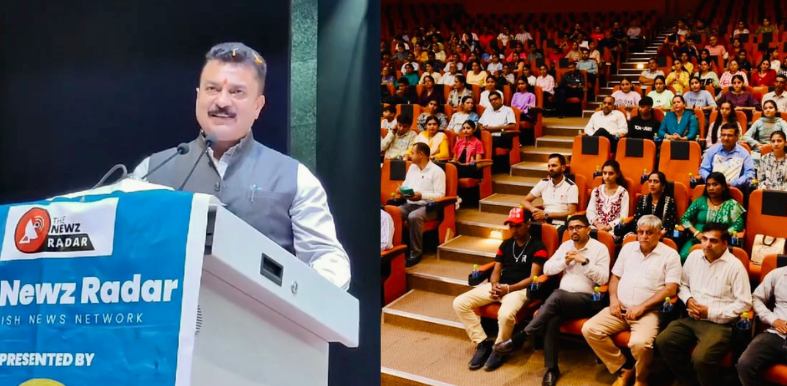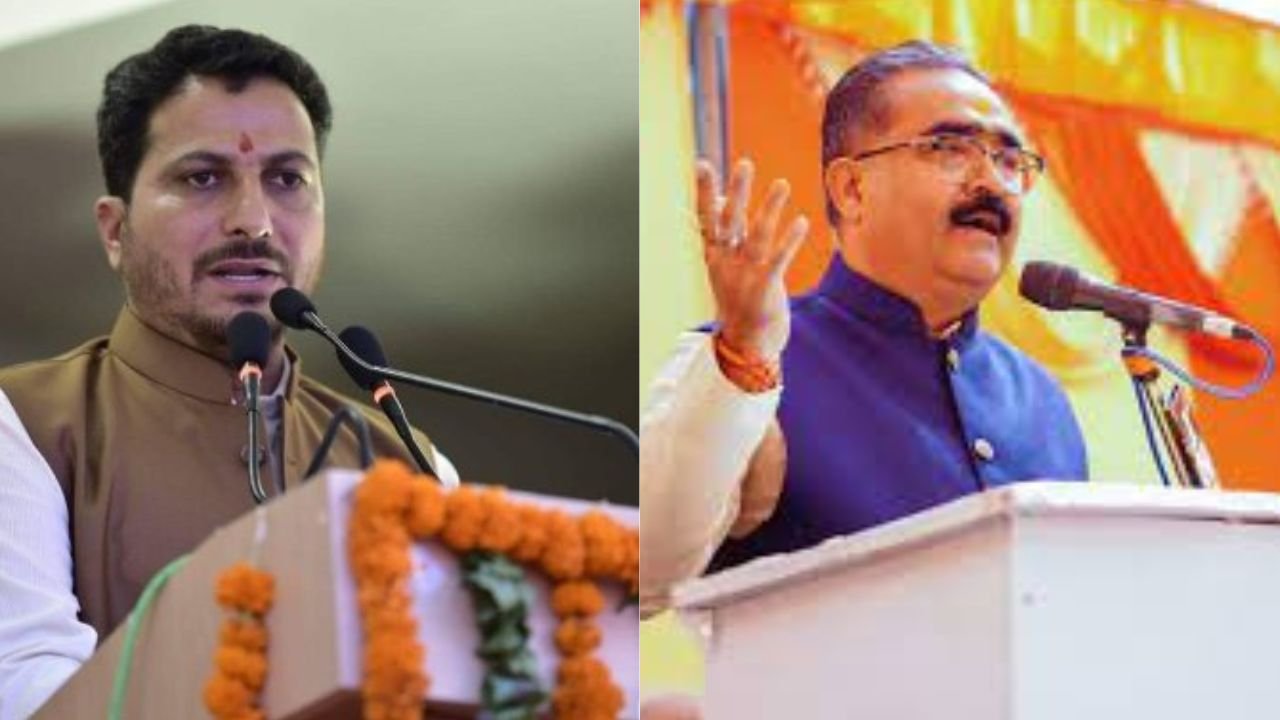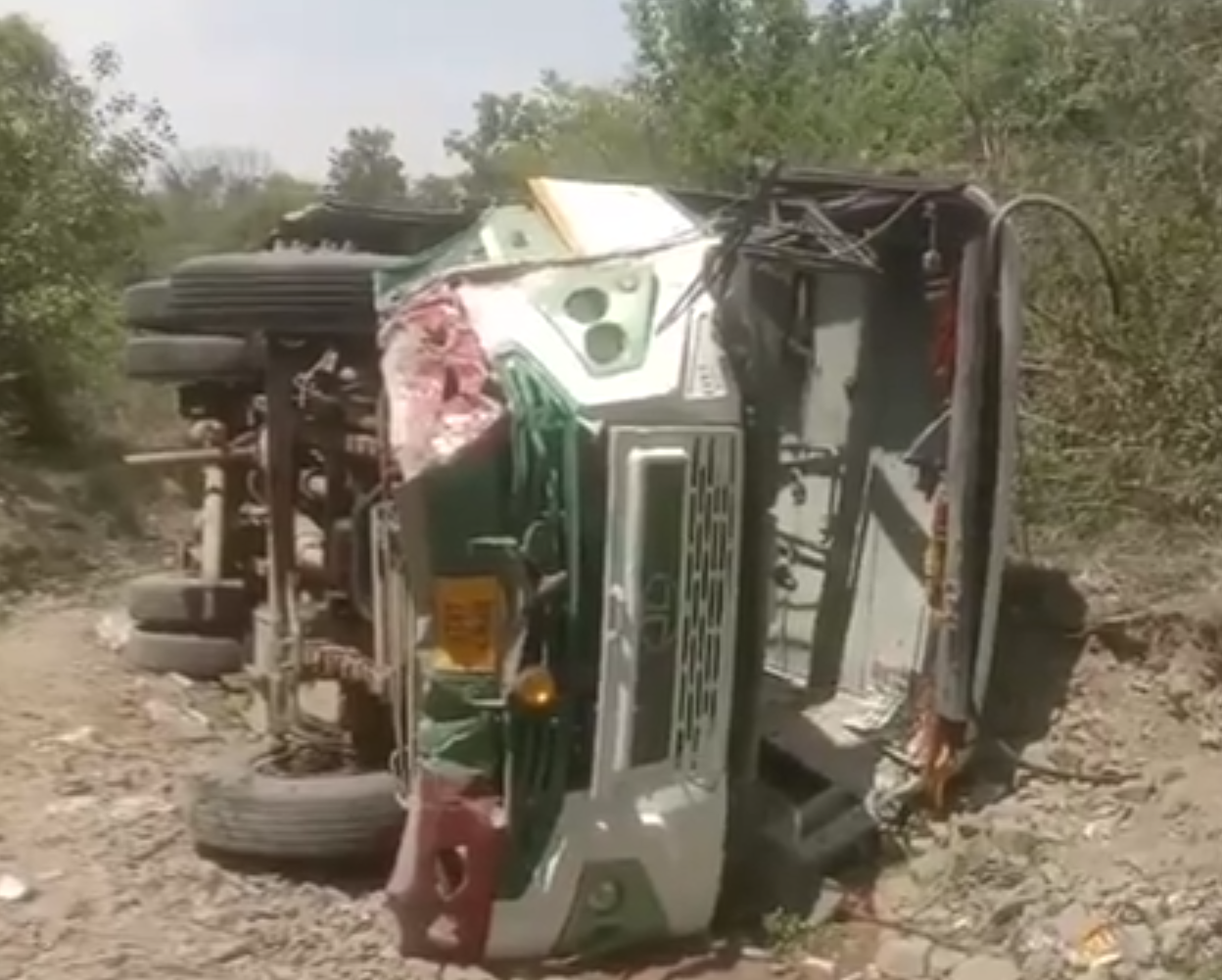Munish Sood
MANDI: The temple town of Mandi, known as Chhoti Kashi, is reeling under a severe water crisis following a cloudburst that struck early Tuesday morning.
Five days on, large parts of the city, which normally gets 24-hour water supply, remain without potable water, leaving thousands of residents grappling with basic survival needs.
The cloudburst completely destroyed the Uhl river-based water supply scheme that fed the Mandi city. The main pipelines have been damaged by landslides and source points have sustained major damage.
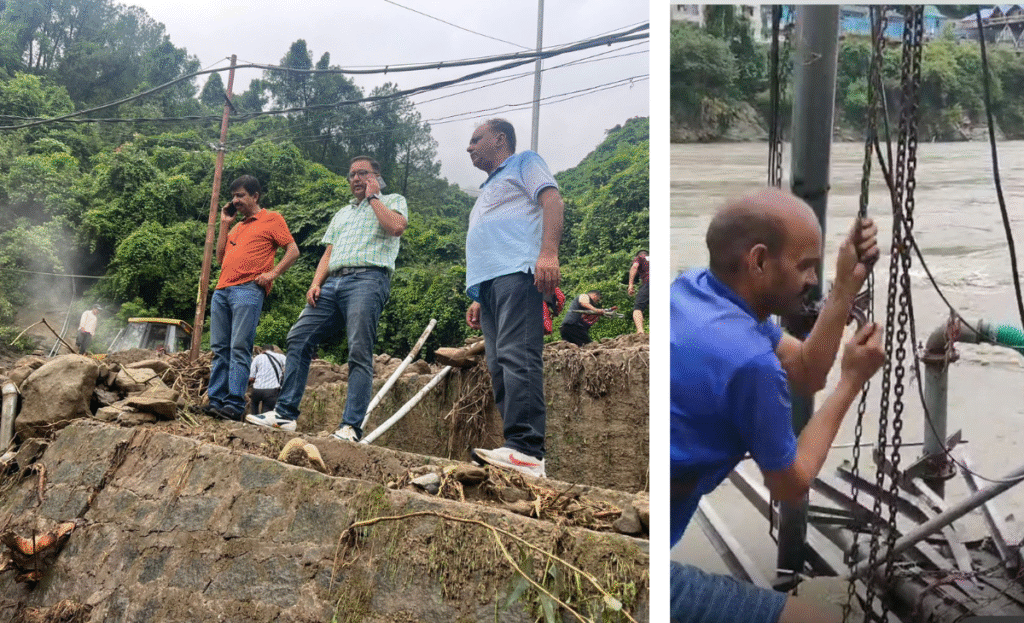
According to Rohit Gupta, Assistant Engineer at the Jal Shakti Department, “The damage is extensive. Our teams are on the site, but bad weather is hampering restoration efforts. We cannot confirm when will the supply be fully restored.”
The crisis has hit hardest the main city areas and its adjoining wards like Palace Colony, Jail Road, Samkethar, Ramnagar Upper Sain Matt and Paddal where water has not reached since Tuesday. Even natural springs and tankers are proving insufficient to meet the demand.
Hospitals also facing crisis
Essential services are now on the edge. At the Regional Hospital, overhead tanks have run dry, forcing patients and their attendants to carry water in buckets. Drinking water is being purchased in bottles. The GNM Nursing School and staff quarters have also gone without water for days, severely affecting hygiene and operations.
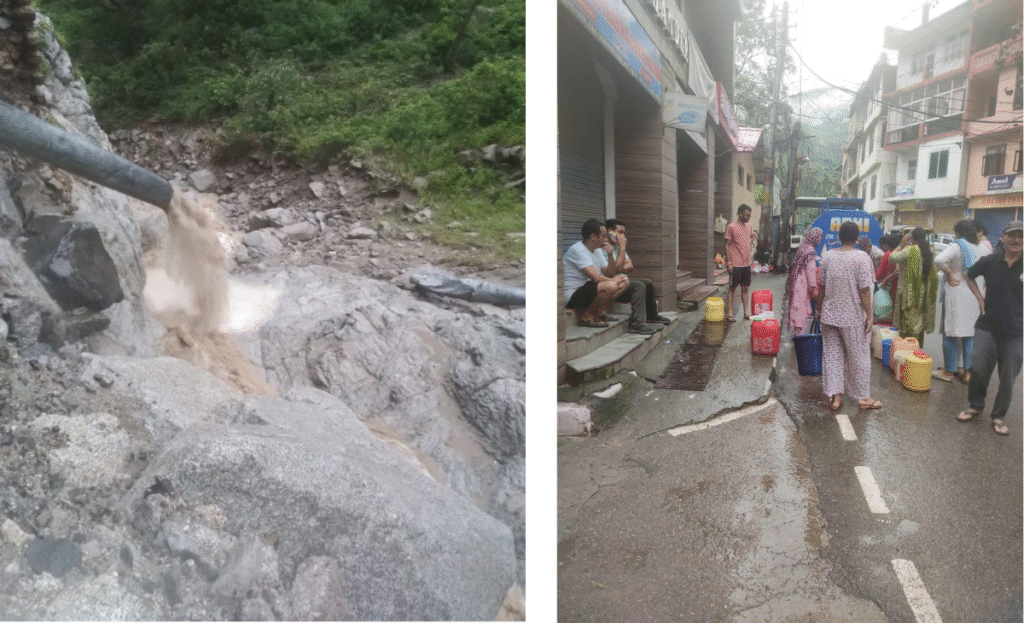
Although some supply has been rerouted to the MCH Hospital and OT blocks, the situation remains fragile. “We’re barely managing. The pipelines are broken and the tanks are empty,” said a senior hospital staff member, requesting anonymity.
Garbage collection halts after landslide
Mandi’s solid waste management plant at Bindrawani has also been impacted due to a landslide, stopping garbage collection across the city for five consecutive days. Piles of waste have now formed across residential and market areas.
Municipal Commissioner Rohit Rathore confirmed that repair work on the approach road is underway. “We expect dumping operations to resume in a day or two. Clean-up will begin immediately afterward.”
Local residents lament poor state of affairs
Citizens are now openly questioning the government’s preparedness and response. Anshul Malhotra, a hotel owner from the city, said: “We are spending Rs 3,500 daily just to get water tankers for our hotel. This isn’t sustainable. Roads, water and electricity are basic needs, not luxuries. Every monsoon it’s the same —landslides, no water, power cuts. Where is the development we talk about?”
His viral social media post reads: “This isn’t progress but destruction disguised as development. Agencies need to plan better. We can’t afford to face the same crisis year after year.”
Praveen Sharma, a long-time resident of the city, raised concerns about alleged unequal water distribution: “We’ve had no water for four days, yet calls to officials go unanswered. Surprisingly, I found that some influential homes are getting uninterrupted water. Why is relief only for the privileged? We all pay the same bills.”
He added: “Yes, the disaster is real, and the damage to pipelines is serious. But if VIP homes can get water, then surely common households deserve at least some supply. Claims of governance reforms must reflect on the ground—not just on banners and speeches.”
Administration urges public to cooperate
When contacted by TNR, SDO Rohit Thakur of the Jal Shakti Department said: “We have restored partial supply in Jawahar Nagar, Bhuili, Bijni, Saulikhad, Washni and some other wards. We are trying our best to cover the entire city by tomorrow evening.”
He said a helpline has been set up for emergency tanker requests and urged residents to use it responsibly.
“Wherever feasible, we are dispatching tankers. Our staff are working round the clock under extreme conditions.”



